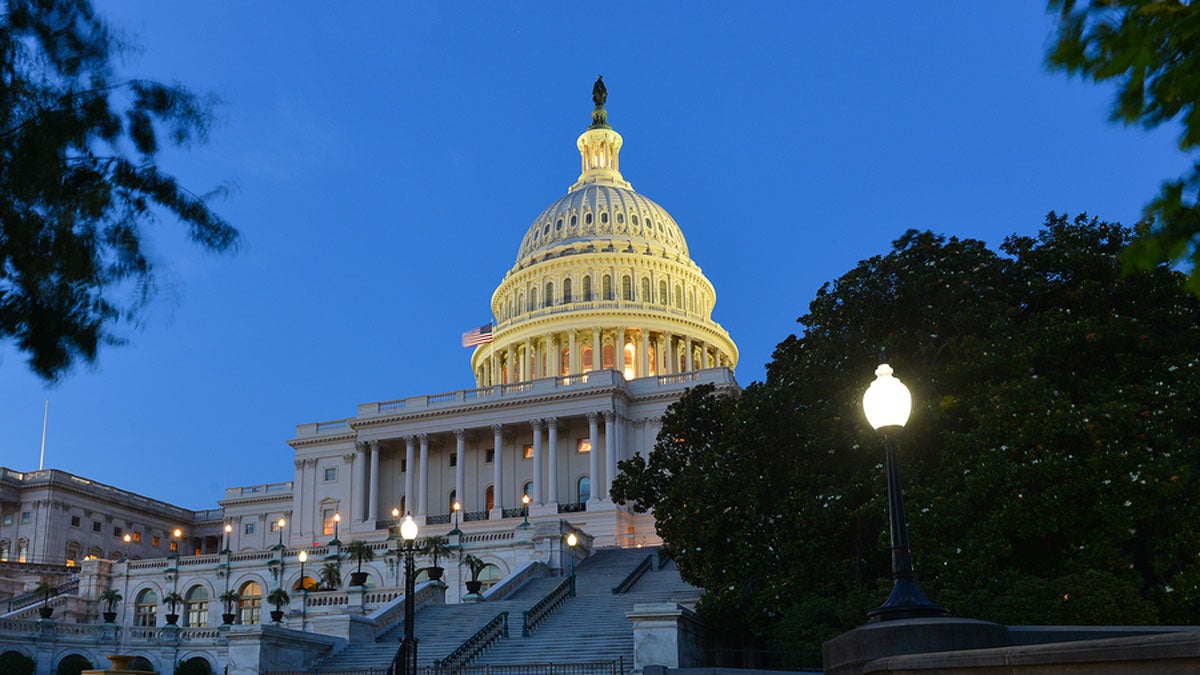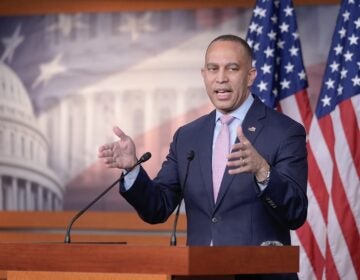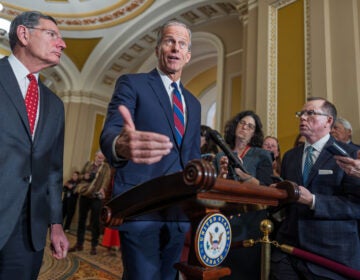Before Senate Republicans repeal Obamacare they must answer these questions

U.S. Capitol building in the evening. (Big Stock image)
A group of 13 Republican senators are holed up behind closed doors to decide the next steps for the American Health Care Act, the Obamacare replacement bill that will affect the future health insurance of all Americans. This is not any person’s version of transparency in action. With reports that the Senate wants to fast-track a vote before Independence Day, no one in the American public knows what may be on the table. Heck, most members of the Senate don’t even know — and that’s especially true for New Jersey, where our two Democratic senators are on the outside of that closed door.
In an ideal world, legislation of this magnitude would be shared widely with the American public with ample time to study it and know how it would affect them. It would be analyzed closely for its impact on U.S. consumers and taxpayers. It would be the subject of hearings and town hall meetings, where constituents could ask questions and share their concerns with the people they elected.
Unfortunately, the American public may not have those opportunities with the Senate’s AHCA bill. But just supposing we did, here are 10 questions I think we have the right to hear answers to:
1. The AHCA bill that passed the House in May would eliminate insurance coverage for 23 million Americans, according to the nonpartisan Congressional Budget Office. How many people will lose their health insurance under the Senate bill?
2. The House bill allows states to remove the protections that ensure people with pre-existing conditions can find affordable coverage. Will the Senate bill maintain protections that allow people with cancer, diabetes, heart disease and other illnesses to not only purchase health insurance but also afford it?
3. The CBO says that the House bill will eventually reduce premiums for some, but raise them for others. The hardest hit with premium hikes would be those ages 50-64 who earn little. To those in the Senate, can you tell us what will happen to our insurance premiums, and our parents’?
4. The House bill would reduce federal support of Medicaid and shift this program to the states. Will the Senate bill likewise move this program to the states? Can you tell us what the impact will be to the 1.8 million New Jersey residents, and 61 million people nationwide, who are covered under NJ FamilyCare and Medicaid?
5. The House bill would phase out federal funding for the states like New Jersey that expanded their Medicaid programs to more people, and leave that financial responsibility to state government. For New Jersey, the loss would be about $4.4 billion annually. Can you please tell us what that will do to the state of New Jersey’s budget and our taxes?
6. Medicaid covers high numbers of families, children and senior citizens. In New Jersey, 45 percent of the spending in Medicaid covers healthcare for those ages 65 or older. It also covers one in every three children in our state. Can you tell us how the Senate bill will impact both the youngest and oldest Americans?
7. Healthcare represents 17 percent of our country’s economic output, and since the recession it has been one of the few sectors that has consistently added jobs. What will the Senate bill’s impact be on jobs and the economy?
8. About 250,000 New Jerseyans buy insurance coverage through the Health Insurance Marketplace, and about 76 percent currently receive subsidies that help defray the cost of their insurance. The House bill would eliminate those subsidies and offer tax credits instead. Will the Senate bill provide the same level of premium support for those 250,000 New Jersey residents, and will they still be able to use the online marketplace to find information about various insurance plans?
9. If I am lucky enough to have insurance right now, will my benefits’ package remain the same? The House bill allowed states to remove a minimum requirement for health plans to cover “essential health benefits” such as hospitalization, preventive care, maternity care, and mental health services. Will the Senate bill also peel back those essential health benefits?
10. The House bill would eliminate health insurance coverage for 23 million Americans. We don’t know yet how many would be affected under the Senate bill. But If I am among those millions who face losing their health insurance, where would my family and I go for the care we need, and how we would we pay for it?
__________________________________________________________
NJ Spotlight, an independent online news service on issues critical to New Jersey, makes its in-depth reporting available to NewsWorks.
WHYY is your source for fact-based, in-depth journalism and information. As a nonprofit organization, we rely on financial support from readers like you. Please give today.




